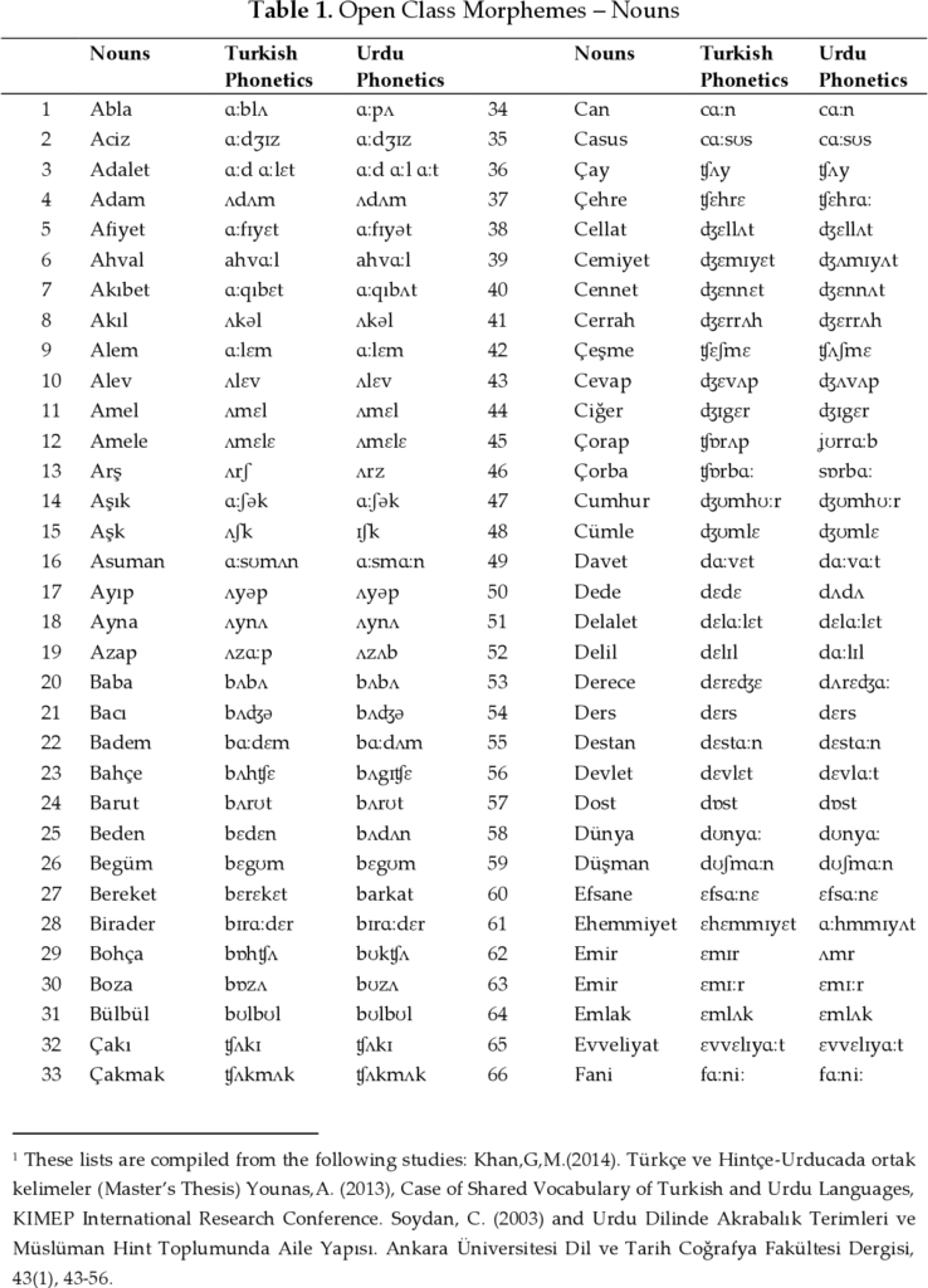When we compare two different languages, we get to know about several interesting factors. Be it the grammatical forms or the similarity of words, it is important to compare the structures of different languages to know how closely related they are. Modern Turkish is the successor of the Ottoman Turkish, which gradually absorbed Arabic and Persian words and even grammatical forms, whereas Urdu itself was heavily influenced by the languages such as Persian, Arabic, Sanskrit, Hindi as well as Turkish. In this article we will analyse how Urdu and Turkish share considerable similarities in structures as well as vocabularies.
The world of languages possesses its own complexities. When it comes to comparing two different languages, we encounter several interesting factors. Be it the grammatical structures or the common vocabulary, it is significant to analyse different languages in order to see how closely associated they are. Here we’ll see how Urdu and Turkish, two of the most spoken languages of the world share considerable similarities.
Turkish is the lingua franca of the Republic of Türkiye and it is spoken by more than 90 million people worldwide, on the other hand Urdu is spoken by more than 230 million people worldwide. It is the official language of Pakistan and one of the official languges of India, whose status and cultural heritage is recognised by the Constitution of India.

Turkish along with other turkic languages (Azeri, Kazakh, Uzbek etc.) falls in the category of Altaic language family, whereas Urdu is an Indo-Aryan language. Modern Turkish is the successor of the OttomanTurkish, which gradually absorbed Arabic and Persian words and even grammatical forms to a considerable degree. When we talk about the development of Urdu, it was heavily influenced by the tongues such as Persian, Arabic, Sanskrit, Hindi as well as Turkish and also borrowed a number of words from them. The word “Urdu” itself is derived from a Turkic word “Ordu” which means army. According to a latest linguistic research, both Urdu and Turkish have thousands of words in common, most of which are those of Arabic and Persian origin. Kitap/kitab (book), begüm/begum (mistress), bacı/baji (sister), hanım/khanam (lady), duvar/divar (wall), kalem/qalam (pen), mümkün/mumkin (possible), masum/masum (innocent), Şair/shayar (poet), adalet/adalat (justice), helva/halva (sweetdish), perde/parda (curtain), ceza/jaza (punishment), baba/baba (father), çay/chai (tea), dost/dost (friend), bahar/bahar (spring), her/har (every), dünya/duniya (world), incir/injir (fig), mum/mom (wax/candle), sabah/subah (morning), şikayet/shikayat (complain), şehir/sheher (city), şarap/sharab (wine), nehir/neher (river), düşman/dushman (enemy), hükümet/hukumat (government), akıl/aql (intelligence) etc. are a few examples.
According to the academicians who are teaching Turkish language and literature at Jamia Millia Islamia in New Delhi, such similarities to Urdu make them easier to learn for the students who are studying them as foreign languages. The students with a mother tongue Urdu especially found it convenient to learn Turkish because of the commonalities between the two. Tuba, a student of Urdu language and literature at the Selçuk University (Konya, Türkiye) says- “Urdu is very similar to Turkish in structure and has a lot of similar words too. As a result, it is relatively easy for a Turk to learn Urdu”. Whereas Hilal, who just graduated in Urdu from Istanbul University (Istanbul, Türkiye) finds the pronounciation of Urdu a hard nut to crack. Derya, a student from Gaziantep (Türkiye) too shared her views regarding same stating, “Actually it is very easy and fun for me to learn Urdu language because their sentence structure is just like Turkish”.
Understanding these subjects helps us to learn new linguistic facts. Even common words can have interesting origins that provide fascinating insights into the histories and cultures. The study of commonalities of languages is nothing but an admirable path of making people realize that they’re the members of a same family. These studies result in enlightening the people by giving them a good insight to better understand and respect each other’s cultures and traditions.
Abdullah Khan is a student pursuing Turkish Honours at Jamia Millia Islamia.
Edited by: Zakia Tasnim Ahmed



